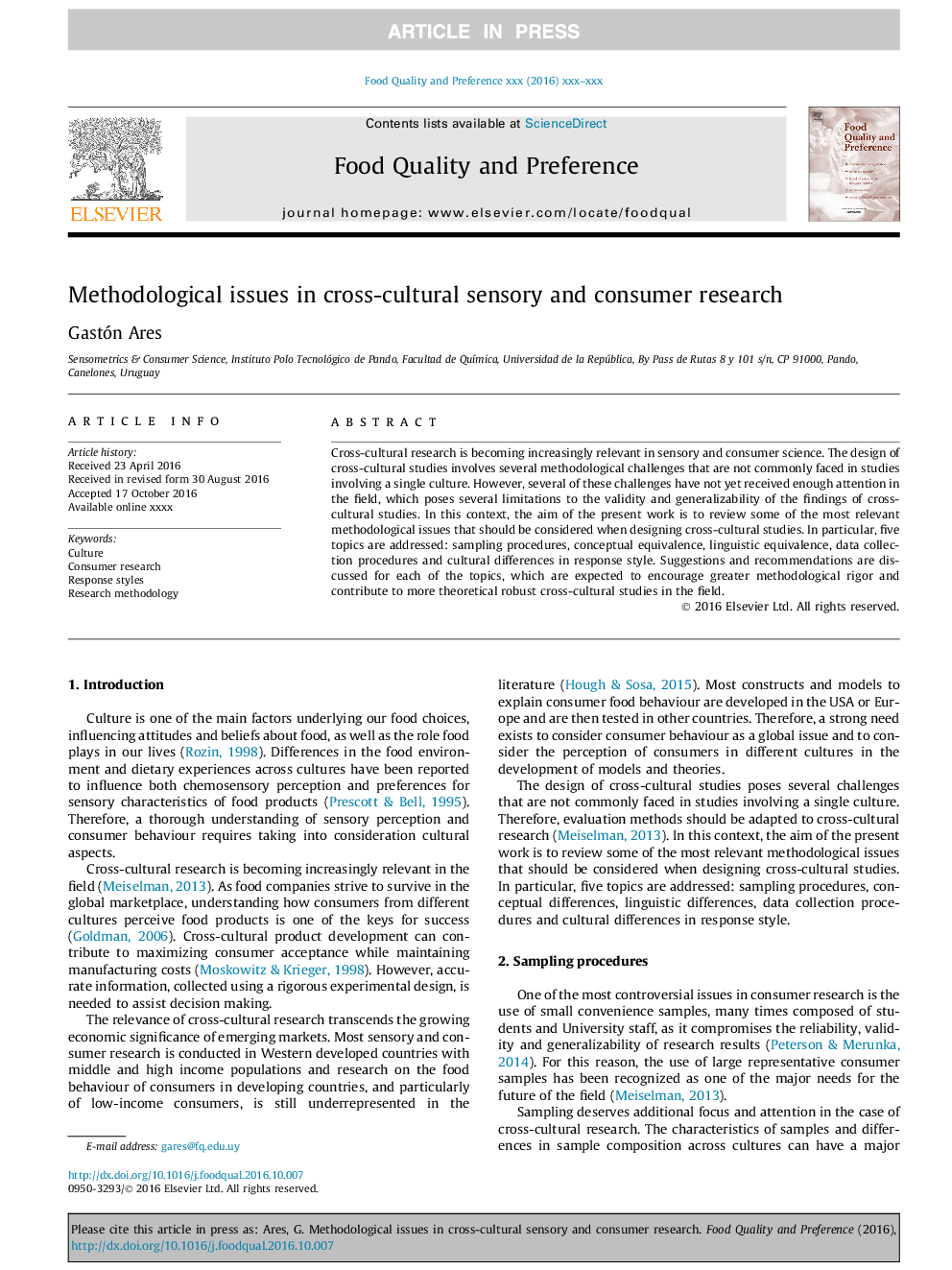| Article ID | Journal | Published Year | Pages | File Type |
|---|---|---|---|---|
| 8838559 | Food Quality and Preference | 2018 | 11 Pages |
Abstract
Cross-cultural research is becoming increasingly relevant in sensory and consumer science. The design of cross-cultural studies involves several methodological challenges that are not commonly faced in studies involving a single culture. However, several of these challenges have not yet received enough attention in the field, which poses several limitations to the validity and generalizability of the findings of cross-cultural studies. In this context, the aim of the present work is to review some of the most relevant methodological issues that should be considered when designing cross-cultural studies. In particular, five topics are addressed: sampling procedures, conceptual equivalence, linguistic equivalence, data collection procedures and cultural differences in response style. Suggestions and recommendations are discussed for each of the topics, which are expected to encourage greater methodological rigor and contribute to more theoretical robust cross-cultural studies in the field.
Related Topics
Life Sciences
Agricultural and Biological Sciences
Food Science
Authors
Gastón Ares,
